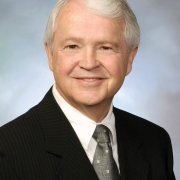CHC adopts new mission focused on quality medical communication and industry ethics
The Coalition for Healthcare Communication (Coalition) has faced multiple challenges in Washington over the years, including major tax legislation (more on that below), and now its Executive Committee has adopted a new mission statement designed to both combat information quackery and its more modern rendition – fake medical news – and to highlight and raise the ethical standards of the medical communication industry.
“It’s exciting and challenging,” says Karsten Risch, chief medical officer at Havas Health & You and leader of the Executive Committee team that spearheaded the project. “While we’re keeping our focus on Washington advocacy, we’re also addressing the public health problems associated with the plethora of bad information available in the internet and elsewhere that is undermining the public health.”
The legacy mission of the Coalition has been focused purely on ensuring the free flow of healthcare information. While this remains vitally important, the Executive Committee of the Coalition expanded the mission to focus also on improvement of the credibility of industry communications, to provide quality guidance to the healthcare communications industry, set standards for what quality healthcare content looks like, and ultimately fight fake news that negatively impacts the health of many.
The New Mission: To protect and promote health information that is accurate, credible, and accessible to all.
The Coalition is actively moving forward in pursuit of our new mission. Part of our mission always has been defending the right of healthcare professionals and consumers to receive truthful information regarding pharmaceuticals and medical products, as safeguarded by the Constitution of the United States. Founded in 1991, the Coalition represents organizations, rather than individuals, dedicated to assuring the free exchange of scientific information without undue government interference. Membership includes the 4As, the major health agency networks, independent agencies, and medical publishers of websites and medical journals.
The importance of communications in successful medical care cannot be overstated, especially as it relates to the application and use of pharmaceuticals and medical devices. Responsible product promotion and other communications directed to healthcare professionals assure that those who prescribe, administer and dispense prescription drugs and medical devices, and the patients who use them, will have the information necessary to use these products appropriately, effectively, and safely.
Unless medical professionals are aware of important advances in diagnosis and treatment, their services may not be used to the greatest advantage of their patients. Further, without free access to appropriate medical information, the lay public will not be able to assume greater responsibility for its own health, a critical factor in the nation’s effort to achieve efficient and effective usage of the healthcare system.
In the coming months, you’ll hear more on the development of a Coalition code of ethics. We think it’s a powerful next step to provide member agencies with guidance on quality of content, which will reduce fake news in healthcare and improve the credibility of the healthcare communications industry. Stay tuned as this new mission roll out happens and more details are released.
Meanwhile, in Washington the most important news is good news: In the major Republican plans to overhaul the corporate and individual tax code, neither the House nor Senate committee versions would change the full tax deductibility of marketing costs. Indeed, by the time you read this, there is a good chance both versions will have passed their respective chambers and the Republican leadership will be faced with the hard job of “reconciling” the two versions to send a final bill to the President. Good luck with that, men and women of the Congress! But, the lack of tax provision affecting marketing deductibility did not just happen. Two ideas were widely circulated. First, Republican members considered and rejected an oft-circulated proposal that would have reduced the deductibility of all marketing costs, not just for medicines and devices.
That provision circulated for months in the drafting stage and was the subject of significant lobbying by the Coalition for Healthcare Communication, the 4As and our media partners in The Advertising Coalition (TAC). We at one point were told that we were “in,” but thanks to many of you who wrote to your member of Congress explaining why the provision would harm jobs, medical education, communication and marketing, the provision was “out” before the House and Senate bills were released.
Sen. Claire McCaskill (D-Mo.) filed an amendment to eliminate the tax deduction for pharma marketing. The McCaskill provision was a credible threat in the Senate because it may have allowed for a bipartisan way to ding the unpopular pharma industry and would have raised money to help pay for other popular deductions.
When last “scored” by budget officials, the pharma-only change raised an estimated $10 billion over 10 years. To raise that amount, the change would need to apply to all pharma marketing, including detailing and provision of samples.
Even though this was a Democratic amendment to a Republican-only bill, the TAC immediately sprung to action against it, and McCaskill chose not to offer it.
Clearly we live in interesting times in Washington.










